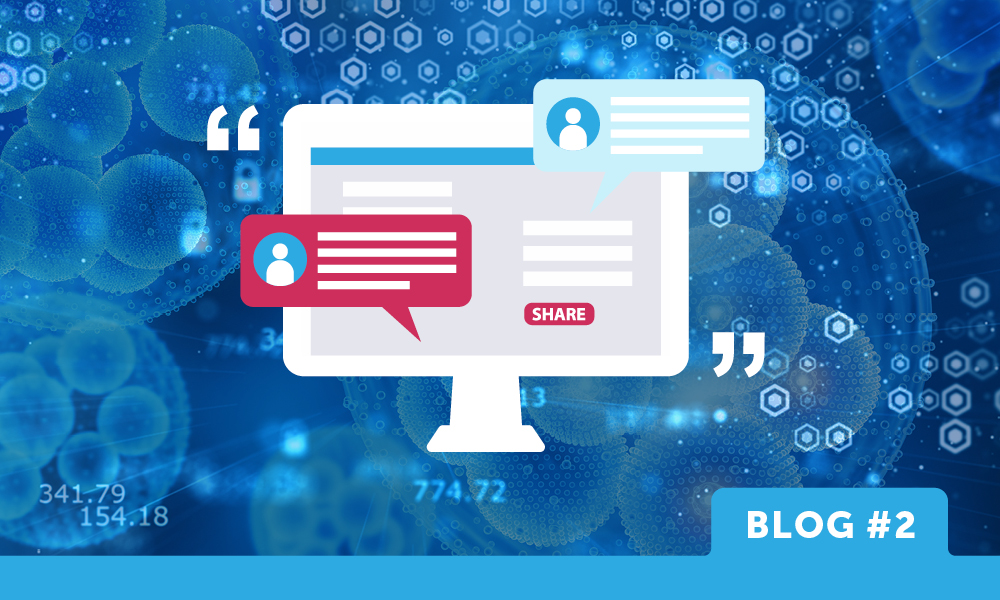In this blog, we highlight the opportunities that the unique research infrastructure of the HARMONY Alliance offers to scientists, physicians, patients, and others.

Many patients with CML, MPN, or HL are relatively young at the time of diagnosis and survival is quite high. Therefore, the long-term management of these diseases is a major clinical challenge. Important issues are potential side-effects of treatments including secondary cancers, patients’ quality of life, and the high costs of long-term therapy.
The key outstanding questions are not only about controlling the diseases, but also about minimizing side-effects and optimizing patients’ quality of life. Therefore, the HARMONY Alliance seeks to collect quality of life data and patient-reported outcome measures in addition to traditional clinical data and molecular data about these diseases.
HARMONY Big Data Platform
The HARMONY Alliance is looking for Partners and Associated Members that want to contribute datasets and expertise in CML, MPN, HL, and WM, and want to use HARMONY’s unique research infrastructure to address key outstanding questions about these diseases. The HARMONY Big Data Platform includes a data lake (>100,000 patient data sets identified) and associated advanced big data analytic tools.
Research teams are using these resources to answer critical questions about blood cancers that cannot be addressed with other methods. In the case of CML, MPN, HL, and WM, the results may allow physicians to tailor the treatment choice to the prognosis of patients, minimizing side-effects and optimizing patients’ quality of life.
Patient involvement is crucial in all above-mentioned research activities.
The HARMONY Patient Cluster and the associated patient communities are involved in designing research projects, defining Core Outcome Sets, multi-stakeholder activities. The Patient Cluster consists of nine European Patient Umbrella Organizations, including CML Advocates Network, MPN Advocates Network, and the Lymphoma Coalition. It is important to involve patients with CML, HL, MPN and WM in research projects at a very early stage. Patients know what matters most and can help to identify informative datasets.
Chronic Myeloid Leukemia: CML is a malignant neoplastic disease of hematopoietic stem cells. It represents approximately 15% of all leukemia cases. The disease was nearly always fatal until 20 years ago, but it can now be successfully treated with tyrosine kinase inhibitors in most cases. A major aim in CML management is to improve patients’ quality of life during long-term therapy. Therefore, the HARMONY Alliance aims to collect patient reported outcome data across various treatments and after treatment discontinuation. These data have been collected in the context of several large studies. By combining data from thousands of patients, HARMONY researchers can draw firm conclusions about the relationship between treatment choice and patient reported outcomes. Collaboration with registries, academic institutes, and the pharmaceutical industry is important to gather as much informative data as possible. A collaboration with three major groups has already been started: European Leukemia Network (ELN), iCMLf Genomics Alliance, and EUTOS registry. In addition to this effort to bring together patient reported outcome data, the team is currently running a pilot research project to decipher the role of genetic lesions (other than the BCR-ABL1 gene fusion that is the hallmark of CML) in the disease course and clinical heterogenicity of CML.
Myeloproliferative Neoplasms: MPNs are a group of rare chronic leukemias. Although life expectancy can be quite long in MPN patients, they must live with an increased risk of infection, inflammation, and thrombosis. The HARMONY Big Data Platform offers excellent opportunities to elucidate the key factors that affect the clinical course of patients with MPN. For instance, the HARMONY Alliance is currently running a research project on polycythemia vera (PV), which is a type of MPN. The HARMONY Big Data Platform will be used to validate the results of another study, which identified key risk factors that may predict drug resistance and intolerance, as well as thrombosis in patients with PV.
Hodgkin's Lymphoma: HL is a cancer of the lymphatic system. It is one of the most common malignancies in young adults. Classical HL is a highly curable disease, and most patients will have a very long survival. However, the treatment of HL may result in serious long-term toxicities, including secondary malignancies, cardiovascular diseases, and infertility. Hence, a major challenge is to optimize the balance between the risks and benefits of various treatment strategies. HARMONY’s research infrastructure and community of experts offer excellent opportunities to address this challenge. Research projects in HL are expected to be launched soon.
Waldenström Macroglobulinaemia: WM is a rare indolent B-cell neoplasm that mostly affects elderly patients. Treatment options for WM have increased significantly in the last decade. The disease is slow-growing and may not immediately require treatment. Start of treatment is only recommended in advanced stages with clinical symptoms such as anemia, B symptoms, and hyperviscosity. The treatment choice is guided by the disease presentation or complications requiring immediate treatment. The HARMONY Alliance aims to advance the understanding of the pathophysiology of WM, resulting in better-tailored treatment choices.
#bigdataforbloodcancer: Accelerating Better and Faster Treatment for Patients with Hematologic Malignancies.
The HARMONY Alliance is a Public-Private Partnership for Big Data in Hematology including over 100 organizations such as European medical associations, hospitals, research institutes, patient organizations, pharmaceutical and IT companies. HARMONY uses Big Data analytics to accelerate the development of more effective treatments for blood cancer patients. The HARMONY Alliance is funded by the Innovative Medicines Initiative (IMI) (now called Innovative Health Initiative, IHI) of the European Commission and is currently running two projects: HARMONY (January 2017-June 2023) and HARMONY PLUS (October 2020-September 2023). In addition to the research projects that exploit the HARMONY Big Data Platform, the HARMONY Alliance is running Delphi surveys to develop core outcome sets (COS) for HMs, as well as Health Technology Assessment projects and multi-stakeholder activities.
Receive the latest news. Click here to subscribe!